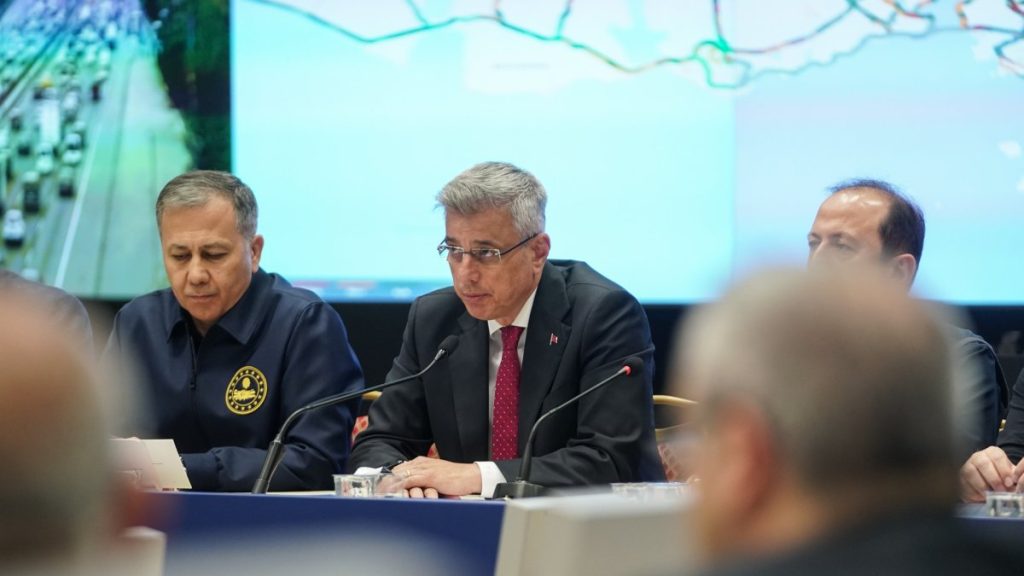The day after the 6.2 magnitude earthquake struck Istanbul on April 23, officials have provided updates on the aftermath of the event. Health Minister Kemal Memişoğlu, Interior Minister Ali Yerlikaya, and Environment, Urbanization and Climate Change Minister Murat Kurum addressed the public, detailing the immediate actions taken and the situation across the city.
Speaking at a press briefing, Yerlikaya emphasized the swift and coordinated response, “We received 16,712 calls through the 112 Emergency Call Center, 995 of which were urgent requests for earthquake-related assistance. In response, we deployed 903 vehicles and 11,482 personnel to provide aid and support across affected areas.”
To meet immediate shelter needs, the government activated 27 logistics warehouses. Yerlikaya reported that over 100,000 citizens were accommodated – approximately 51,000 in mosques and nearly 50,000 in schools and public lodgings.
In addition to shelter operations, food and water distribution efforts were launched across the city. A total of 308 distribution points were established, where hot soup, packaged meals and bottled water were provided. These operations were supported by 99 catering vehicles from the Turkish Red Crescent (Kızılay) and a team of 1,508 personnel and volunteers.
He also referenced a statement from the Disaster and Emergency Management Authority’s (AFAD) Scientific Committee issued late on April 23, advising residents not to enter buildings considered at risk and to remain vigilant about aftershocks. Citizens were urged to report any concerns to the emergency call center and to rely only on official announcements. “We once again urge the public not to spread or believe in unverified information,” Yerlikaya concluded.
Kurum stated that authorities immediately mobilized to the AFAD’s Disaster Coordination Center after the quake. “As soon as the earthquake occurred, we moved quickly to the disaster zone. We began informing the public transparently. Disaster coordination was activated across all 39 districts under the supervision of local governors.”
He continued, “We received 1,399 building reports, our teams conducted assessments and found minor damage in seven buildings. An abandoned building collapsed in the Fatih district.”
To support ongoing assessments, 3,000 damage inspection personnel were deployed across Istanbul. Kurum added that inspections were launched on 28,500 public buildings purely as a precaution. “We’ve already examined dormitories and found no damage. Today, we will inspect hospitals. We will continue to share updates openly with the public.”
Health Minister Kemal Memişoğlu confirmed that the earthquake did not result in any primary injuries. However, 60 people were treated for secondary injuries, mostly caused by panic or accidents while fleeing. “Fifty-five of these patients are in Istanbul, one in Sakarya, two in Yalova and two in Tekirdağ. None are in life-threatening condition.”
He praised the rapid response of health care personnel and urged citizens to remain calm during emergencies. “People need to be mentally and structurally prepared for earthquakes and must know what to do before and during such events.”
Memişoğlu noted that all hospitals continued to operate without interruption and that structural assessments were being reviewed again. “These hospitals are central to our disaster response. Both our physical infrastructure and medical staff are ready for any emergency. Through drills and updated emergency plans, our health system is well-prepared. But the public and buildings must also be ready. Reducing earthquake risk in Istanbul requires collective action. As minister of health, I’m monitoring all developments closely and we are taking every necessary step to safeguard public health,” he said.


